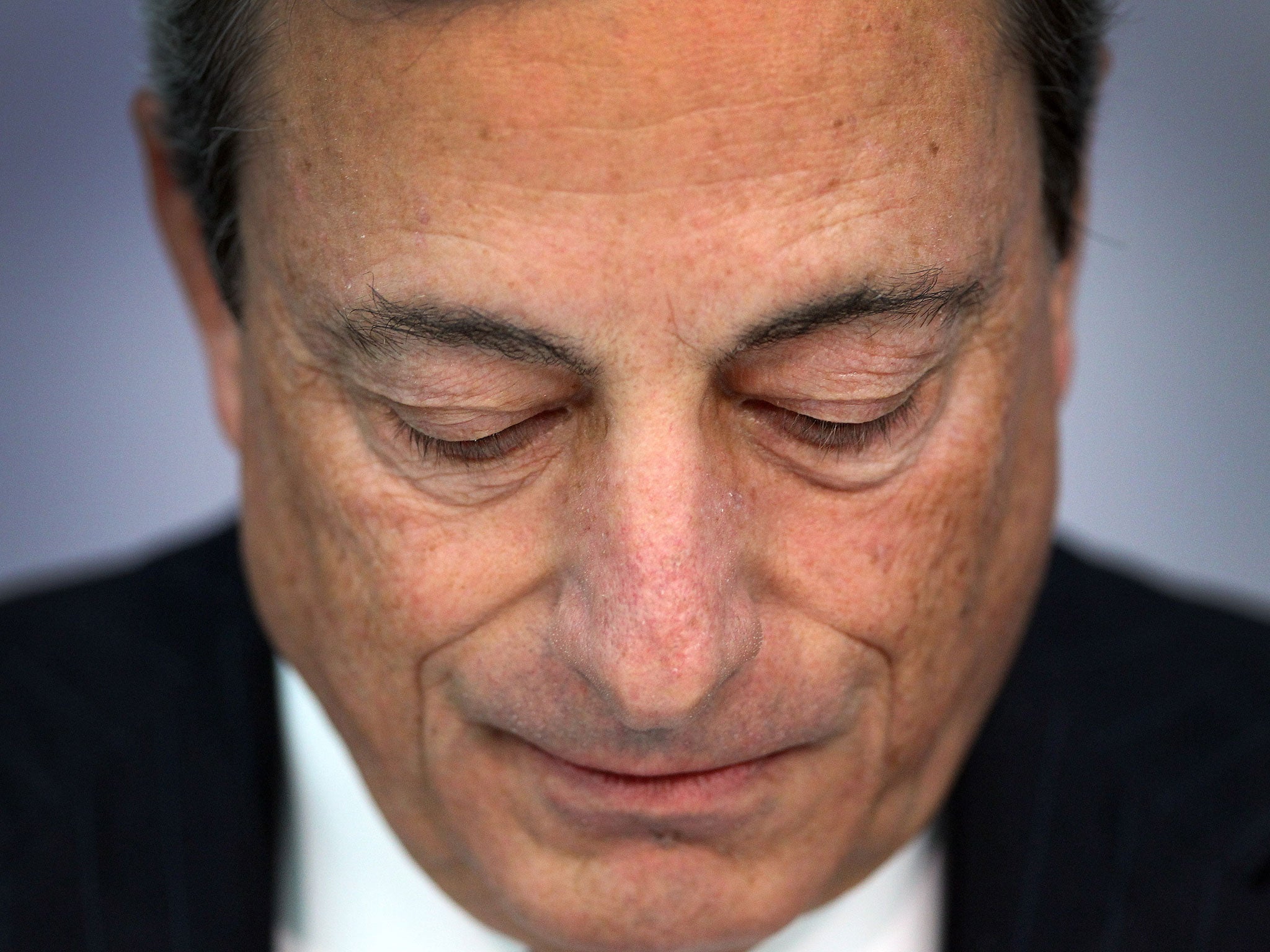The European Central Bank yesterday took a step closer to adopting full-blown quantitative easing in order to steer the eurozone away from deflationary stagnation.
At his monthly press conference, the central bank’s president, Mario Draghi, revealed that the ECB has instructed its staff to prepare “further measures” to combat low inflation in the single currency area which will be enacted “if needed”.
These measures are widely understood to include purchases of eurozone sovereign bonds, something that the ECB has long shied away from and which has provoked intense opposition from Germany’s conservative Bundesbank.
The ECB also suggested financial markets should expect a €1trn injection of liquidity from the central bank over the next two years as it implements its existing plans to buy asset- backed securities and covered bonds in order to boost the flow of credit to the eurozone.
“These asset purchases will have a sizeable impact on our balance sheet, which is expected to move towards the dimensions it had at the beginning of 2012” Mr Draghi said. Assets on the ECB’s balance sheet currently stand at just over €2trn. In March 2012 assets peaked at €3.1trn.
The dovish tone of the press conference prompted a sharp fall in the value of euro, which dipped half a cent to a two-year low of €1.24. European equity markets were also supported.
Jennifer McKeown of Capital Economics said the statement “provided the firmest support yet for our long-held view that the Bank will implement full-blown quantitative easing”. She added: “It is now a matter of when rather than if”.
“Draghi was sending a message that that the macro environment may have deteriorated sufficiently for the ECB to conclude that the policy measures introduced so far are not good enough” said Marchel Alexandrovich of Jefferies. Christian Schulz of Berenberg Bank said there was now a 40 per cent chance of QE in early 2015.
However, several analysts predicted the ECB would first widen its asset purchase scheme to include corporate bonds before taking the plunge on soveriegn debt.
Mr Draghi also sought to play down reports of growing tension on the ECB’s governing council over its stimulus strategy and his management style. “It‘s fairly normal to disagree about things. It happens every-where,” he said, adding that his introductory statement, which referenced the growth in the ECB’s balance sheet and the preparation for extra measures, had been approved and underwritten unanimously by the ECB’s council.
Eurozone inflation ticked up slightly to 0.4 per cent in October, having sunk to 0.3 per cent in the previous month, but remained well below the ECB’s target of just below 2 per cent.
The ECB began its purchases of covered bonds, which is designed to ease the flow of credit to firms in the currency bloc, last month, acquiring €4.8bn worth of the securities. It will soon start to buy asset-backed securities as well. But analysts are sceptical over whether these programmes alone will enable the ECB’s balance sheet to hit its target over the next two years.
Subscribe to Independent Premium to bookmark this article
Want to bookmark your favourite articles and stories to read or reference later? Start your Independent Premium subscription today.


Join our commenting forum
Join thought-provoking conversations, follow other Independent readers and see their replies